Summer of Service

These five third-year law students were drawn to public service work for different reasons, but they are part of the same compassionate guild. They want to help empower and alter the fates of people in need through a deeper understanding of their stories, focusing on immigrants, juveniles, and low-income detainees.
They share an affinity for helping those who are disenfranchised, a knack for storytelling, and an awareness that with every court filing, brief, or appearance, they are getting closer to becoming the kind of attorneys and—perhaps more importantly—the kind of people they want to be.
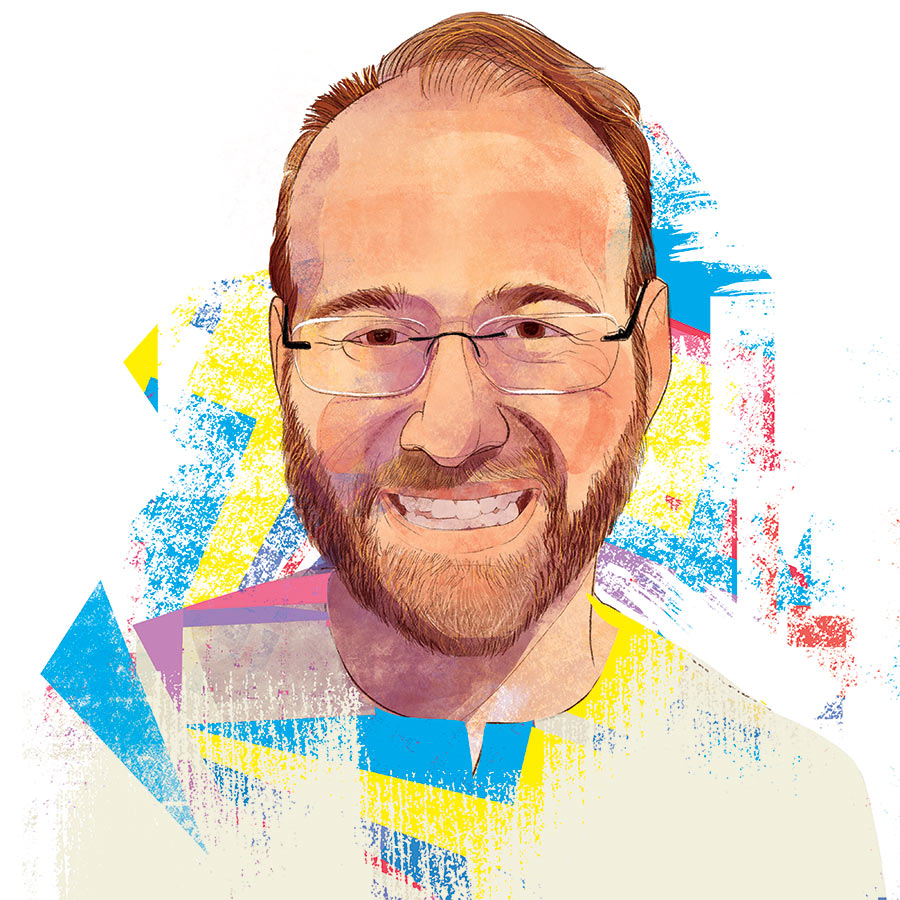
THE EDUCATOR

Zipping along on green bike lanes and potholed streets, he would follow subway line routes from Harlem to Brooklyn neighborhoods such as East New York and Brownsville, often home to the juvenile clients he worked with as a summer intern at Lawyers for Children.
“This is all one city,” Baer said. “And everyone in it deserves advocacy and support.”
Baer has much experience supporting teens. After college, he taught Latin, English, and history in middle and high school, but felt his ability to impact children’s lives was inadequate.
“I saw the barriers they had in their lives and saw that it prevented education from being this great equalizer that it could be,” Baer said. “Working with kids remains my passion, but the more I thought about teaching them how to read and write, I knew this work didn’t need to be in the classroom.”
“Just because they’re kids doesn’t mean they’re not able to express their wishes, so I want to give them that full direct representation, the chance to be heard and let the court know what they want,” Baer said.
Often, adults speak for kids and think they know what they want, but the adults are often wrong, he says.
“I don’t pretend that public interest work is going to be easy. I recognize that it is going to be draining and challenging,” he said. But part of what helps him is New York City’s progressive spirit and passion for public interest.
“There’s a benefit to being in the city that I know, the city that I want to serve, and with the people that I want to serve,” Baer said. “Feeling this deeper connection with the city has allowed me to find the passion in the work.”
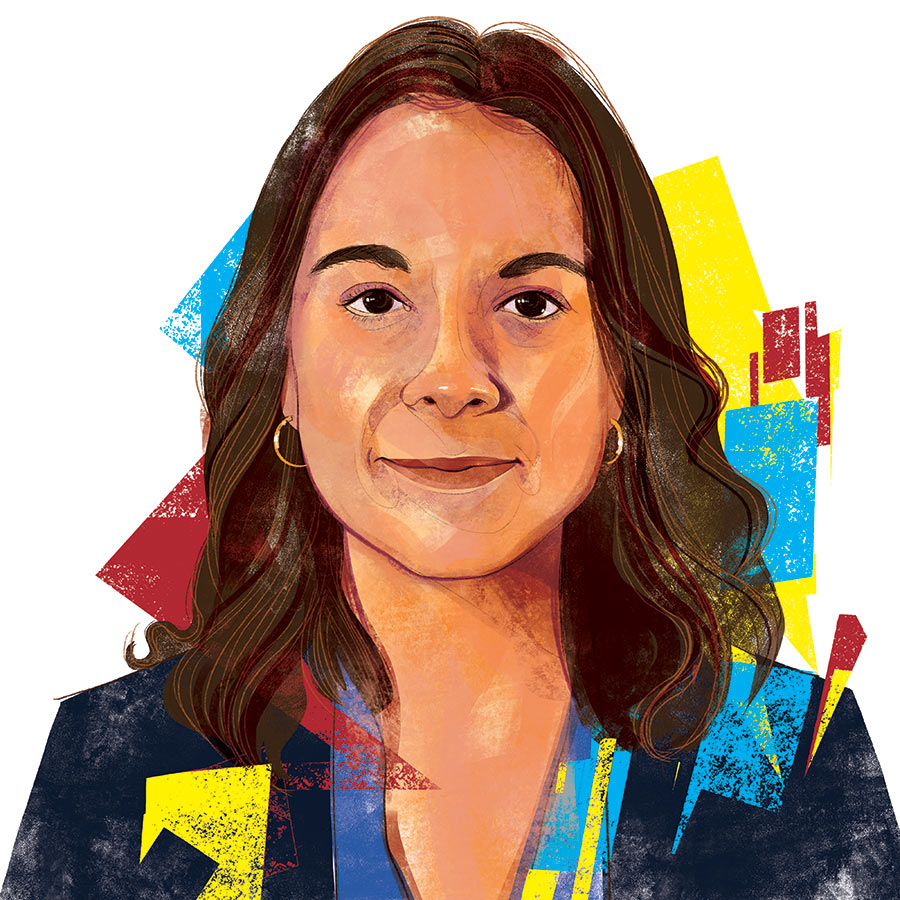
THE ADVOCATE

Lopez spent the summer interning at Brooklyn Defender Services (BDS), helping people facing deportation from the country they consider home. As part of the BDS immigration practice’s New York Family Immigrant Unity Project, she helped detainees fighting removal apply for asylum, special immigrant juvenile status, U-visas, and other forms of immigration relief.
“It’s pretty personal to me,” Lopez said. “Both of my parents are Cuban immigrants who came here in the ’90s. Seeing how they were able to establish themselves and build a strong family in this country has definitely grounded me in the work I do.”
New York City is a designated sanctuary city for immigrants, but being arrested and fingerprinted in the city sets off an alert for U.S. Immigrations and Customs Enforcement (ICE). Since ICE lacks private contracts with city jails, noncitizens arrested by ICE are often sent to Orange County Jail in Goshen, N.Y. This summer, however, ICE transferred many detainees to other upstate facilities and to other states, including Mississippi—even after repeated reassurances that no transfers were in the works. Neither the attorneys nor the families of the detainees were given notice, Lopez said. Welcome to the unpredictability of immigration enforcement.
Besides the curveballs, immigration cases with underlying criminal arrests or convictions are sluggish and complicated.
“Unfortunately, it’s kind of minor wins since these cases tend to last a long time, but the highlights are interacting with clients and with their family members,” Lopez said. One victory: getting a client out on bond so he could fight his immigration case while at home with family. “Cases are easier to win once they’re out,” said Lopez, a native Spanish speaker, who says breaking through the language barrier helped her gain trust. “Attorneys can meet with their clients more often and spend more time building and preparing their cases.”
Lopez came to law from a position of advocacy. After getting her undergraduate degree, she helped noncitizens seeking postconviction relief in New York City with the Center for Appellate Litigation’s Immigrant Justice Project, piquing her interest in immigration law. The “severe and arbitrary nature” of the consequences noncitizens faced in relation to the offenses was “devastating,” Lopez said, and inspired her to seek a public service law career to keep protecting immigrant rights.
“Just because they weren’t born here does not mean they are less deserving of basic human rights. Immigrants deserve respect, safety, and dignity,” she said.
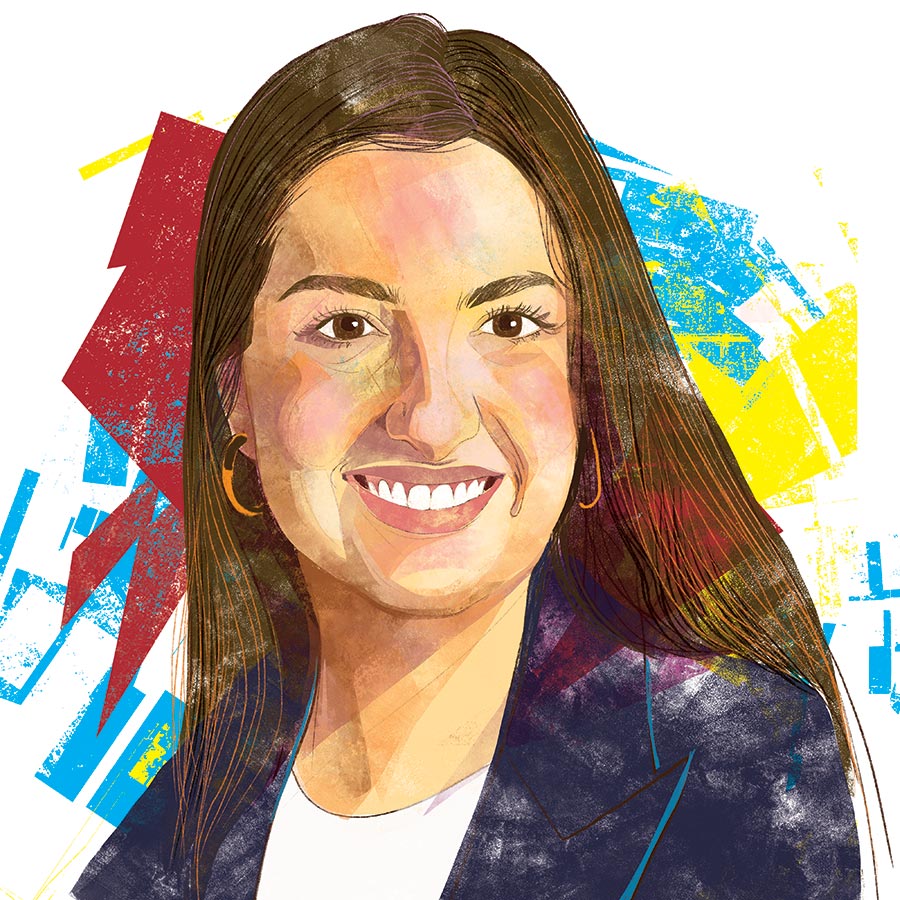
THE HOLISTIC PRACTITIONER

As an undergraduate psychology major, she intended to become a doctor, but veered unexpectedly toward law.
“I worked in a psychiatric hospital for a summer internship, and I brought my patients to court,” Massaker said. “I used to watch while their attorneys basically dismissed them, and the more I saw, the more I wanted to do something about it.”
While interning at the Legal Aid Society in New York this past summer, she took on the typical duties of a public defender, in court for everything from “small misdemeanors up to attempted manslaughter,” but also often used her psychology experience to take a holistic approach to clients.
“I’ve been preparing briefs, cross-examining people on the record, asking that judges release people on their own recognizance versus setting bail, and brainstorming to explore creative ways to find relief for the client,” she said. That relief could include locating mental health services, a shelter, or multiple “things that we take for granted,” said Massaker.
The capital offense clients she worked with, before entering Brooklyn Law, underwent mandatory neuropsychological evaluations, which Massaker’s background allowed her to interpret. Issues such as having a childhood brain injury or coming from a family with a generations-long history of physical abuse are key parts of mitigation during a legal case. That experience helped her represent clients on death row during an internship in Louisiana.
“Being antisocial, as many capital clients get labeled, is more likely to be a trauma response, and explains the way people cope with stressful situations,” she said. “There needs to be an acknowledgment for how people of different races and experiences think about the police, the legal system, and other systems deemed to ‘help’ people. Childhood abuse, interpersonal abuse, and traumatic experiences all factor into how a person handles decision making.”
Massaker, who wants to be a public defender after graduation, says the Black Lives Matter movement and social media have fueled others’ interests in social justice for the better.
“When the system was created, it was not in a just way, so we must rethink how we treat those in our community,” she said.
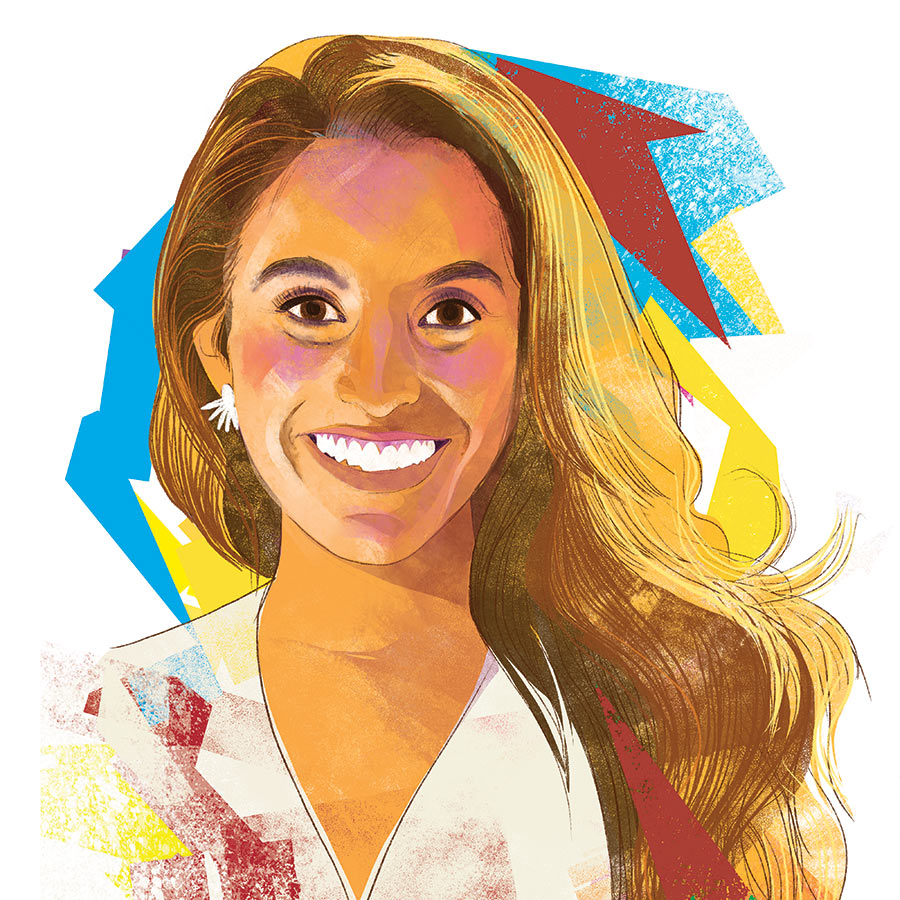
THE STORYTELLER

“No one story looks the same as another,” Shah said. “Different characters, different variations, different plotlines.”
The plotlines do not lack drama. As a Sanctuary for Families intern last summer, Shah helped represent a pregnant mother of three from Guatemala who faced deportation after being apprehended at the southern U.S. border. She sought asylum as a victim of gender-based violence.
“We showed that she couldn’t go back to her country, and everything had come to a head for the family,” Shah said. The court, the prosecutor, and the Immigration and Customs Enforcement agency attorney were persuaded.
“They said, ‘We agree based on what you put forward. You really made the narrative come through,’” recalled Shah, who was with the legal team, at the mother’s side, when she got the news.
“I remember going to court and when we heard the ruling, she was sobbing and we were all sobbing,” Shah said. “That was really an exciting success.”
In criminal cases, clients might get arrested for shoplifting groceries or selling pirated movies or DVDs.
“Some of it is not knowing that it’s illegal, not knowing that there will be such serious consequences,” said Shah, who is interning this fall at the American Civil Liberties Union, working on immigrants’ rights projects.
Shah’s father immigrated from Kenya and her mother from India. Both are doctors, but her father initially worked at Sears until, she said, someone “gave him a chance,” with a fellowship at New York University.
“I see a lot of my parents reflected in the clients that I have served,” Shah said. “I’ve met some people who have had extraordinary circumstances happen to them but are the kindest people.”
One of the difficulties of the work is being at “the whim” of changing laws and administrative decisions. There is also the challenge of burnout, which has prompted her to focus on self-care, breaking the habit of checking her phone at night or replying to emails upon receipt.
“I’ve met so many amazing clients who have made it so worthwhile,” Shah said. “I’m very much set on continuing to do this, and we’ll see what avenues open up.”
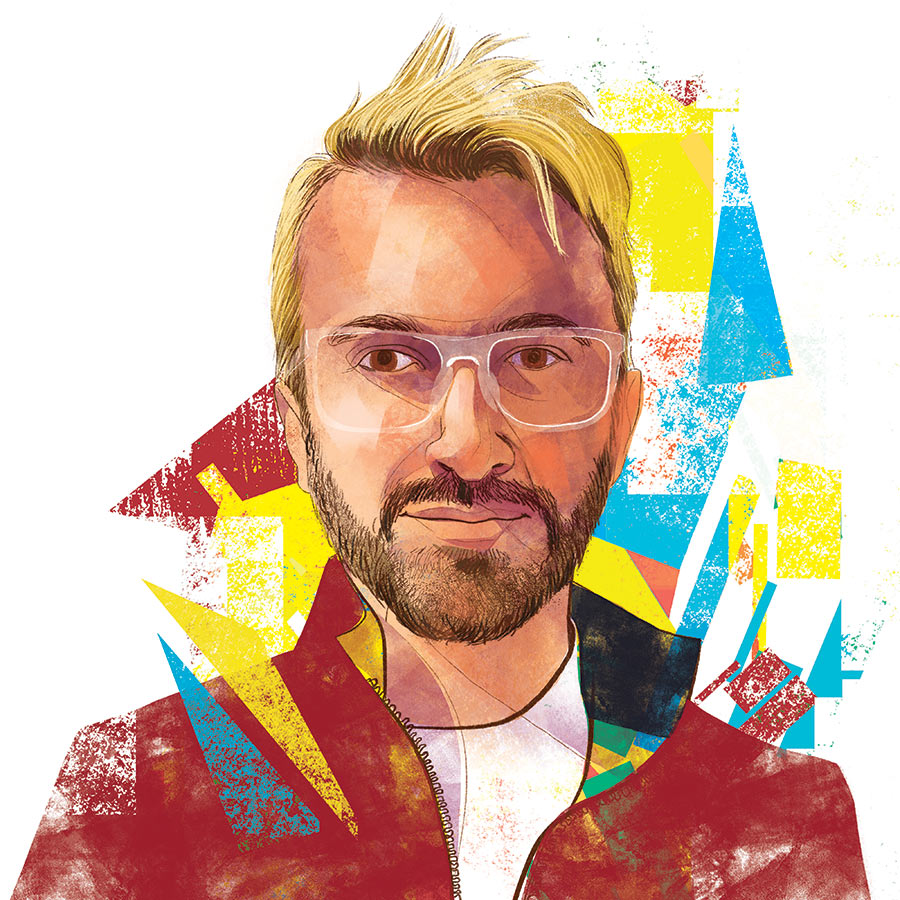
THE PIONEER

The pandemic quashed those plans, but an internship landed him at Alaska Legal Services (ALS) this past summer, albeit virtually. Smith plans to pursue immigration law but wanted broader experience. ALS delivered, with casework spanning family, native Alaskan, and elder law, plus public benefits, housing, healthcare, child welfare, and veterans.
“Now I’m fascinated by the idea of practicing law there,” Smith said. “It’s the second-youngest state, it has a lot less legal precedent than New York does, and as a pro bono lawyer, you genuinely have a chance to shape the law.”
Alaskan culture, glimpsed through the watercooler lens, intrigues Smith. Outside Anchorage, Fourth of July involves the spectacle of 13 wrecked vehicles representing the original states sent over a cliff (they are later recycled) as a celebration of freedom. Motorists worry about moose collisions. Clients can go dark because they are growing food or hunting over the year’s six warm months for winter “subsistence” or because mail is hard to access in super-remote fishing villages.
Smith has found a surprising level of immigration law opportunities in a state that ranks No. 3 in pro bono lawyers per capita. He helped draft notices and motions and ancillary material for an appellate brief for a case involving a public benefit recipient with language access issues that may go to the state Supreme Court as a case of first impression.
“It was really disheartening, and even though it was a horrible problem, the highlight was how attorneys can see a problem coming and try to get ahead of it,” he said, adding that ALS works with agencies to help people without homes understand their rights.
Helping others know their legal rights resonates with Smith, who learned to stand up for his own beliefs while working in user experience for Big Tech. The field felt at odds with his own values, and it was emotionally taxing.
“I didn’t feel like I was connected in any way to the people I was told I was helping,” Smith said.
After leaving his tech job, Smith finished his undergraduate degree and taught English as a second language at a legal aid organization for immigrants studying for their naturalization exams.
“The experience that I had there was pretty profound. I worked with one woman who passed on her first try and it was great to be part of that,” he said. “It’s been public interest for me ever since.”